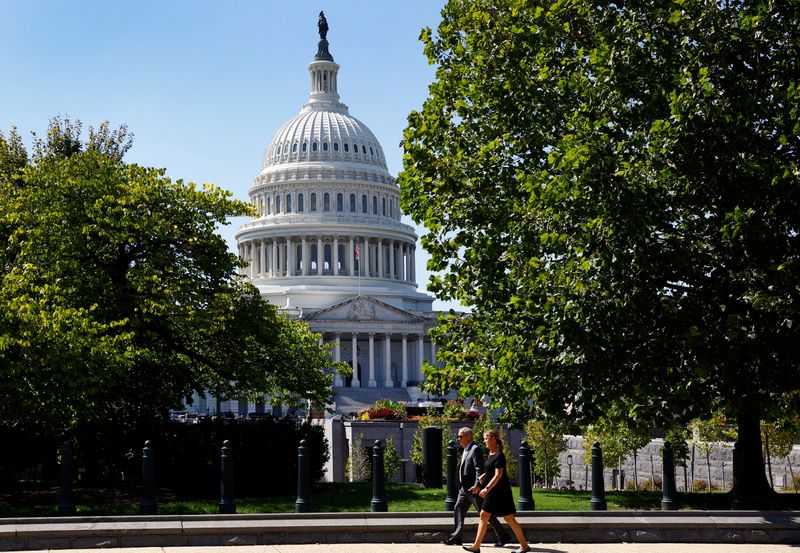Legislation to curb US investment in China is top priority, lawmaker says
2024.09.25 14:49
WASHINGTON (Reuters) – The Republican chair of the House select committee on China said on Wednesday the panel’s top priority is legislation restricting U.S. investment in China to stop U.S. investors from “funding our own demise”.
“We have to have an outbound investment regime that basically says, ‘No investment in these businesses that are on some kind of a list,’ that says, ‘We shouldn’t be helping the Chinese military, we shouldn’t be supporting genocide,'” Rep. John Moolenaar said, speaking on a panel at the American Enterprise Institute.
“That’s probably our number one priority right now,” he added. “We are actually funding our demise.”
Moolenaar’s spokesperson confirmed that “genocide” referred to China’s alleged treatment of its Uighur minority in Xinjiang. The Chinese Embassy in Washington did not immediately respond to a request for comment.
The remarks signal Congress could revive long-sought restrictions on U.S. investment in China, which have faced a rocky path in Washington.
A measure restricting outbound investment was stripped out of the Chips Act before it was signed into law in 2022. In August 2023, Democratic President Joe Biden issued an executive order giving the Treasury Department the authority to bar or restrict U.S. investments in Chinese entities in three sectors: semiconductors and microelectronics, quantum information technologies and certain artificial intelligence systems.
But rules implementing that order, proposed in July, have yet to be finalized. Treasury did not respond to a request for comment on the status of the proposed rules.
Moolenaar said House Speaker Mike Johnson “would like to have something before the end of the year.” Johnson’s office did not respond to a request for comment.

The United States and other Western countries have imposed sanctions on Chinese officials for human rights abuses in Xinjiang, which the United States has said have amounted to genocide.
China rejects allegations of abuses including use of forced labor in Xinjiang, and describes the camps it has set up there as vocational training centers for Uighur Muslims that help combat religious extremism.








